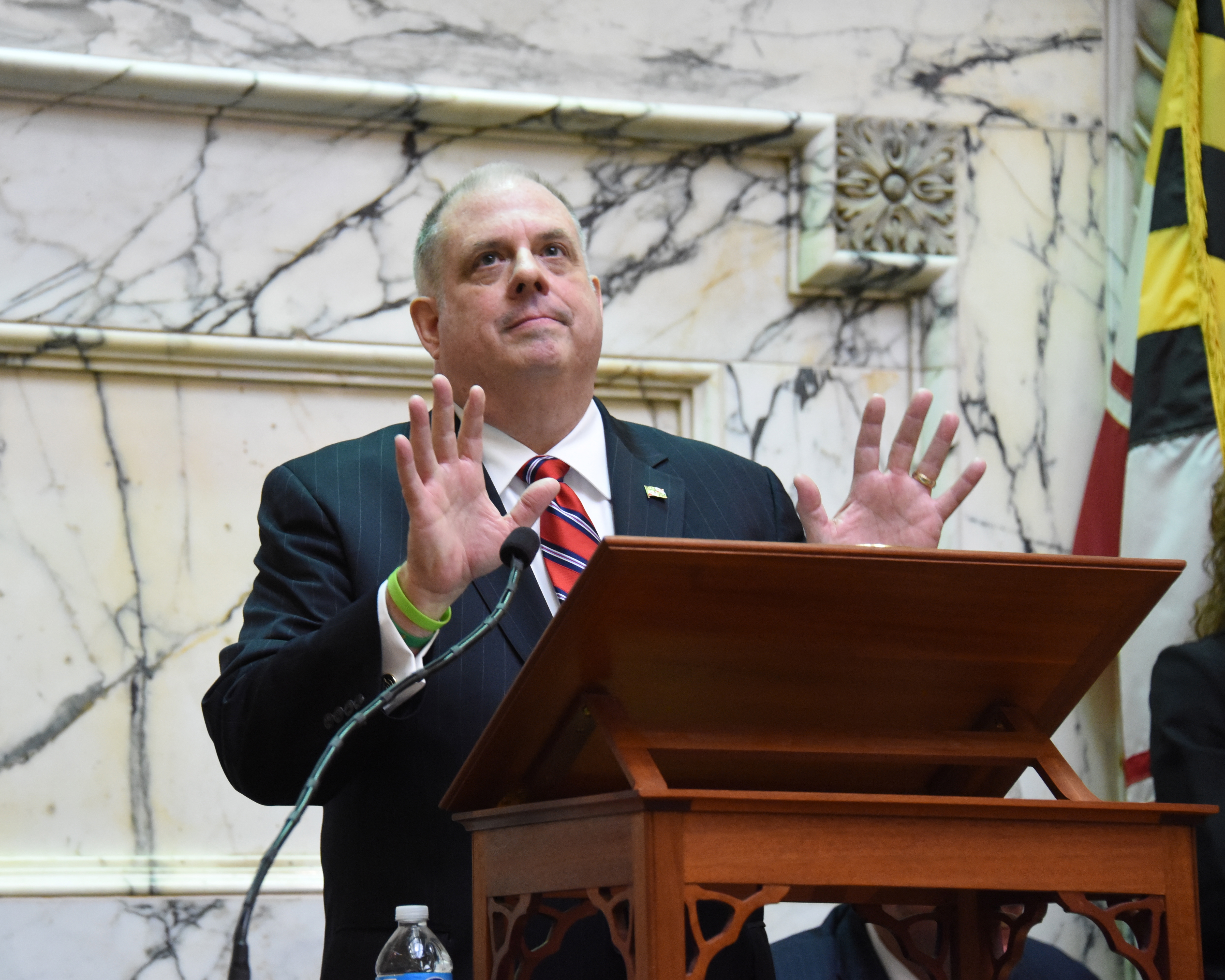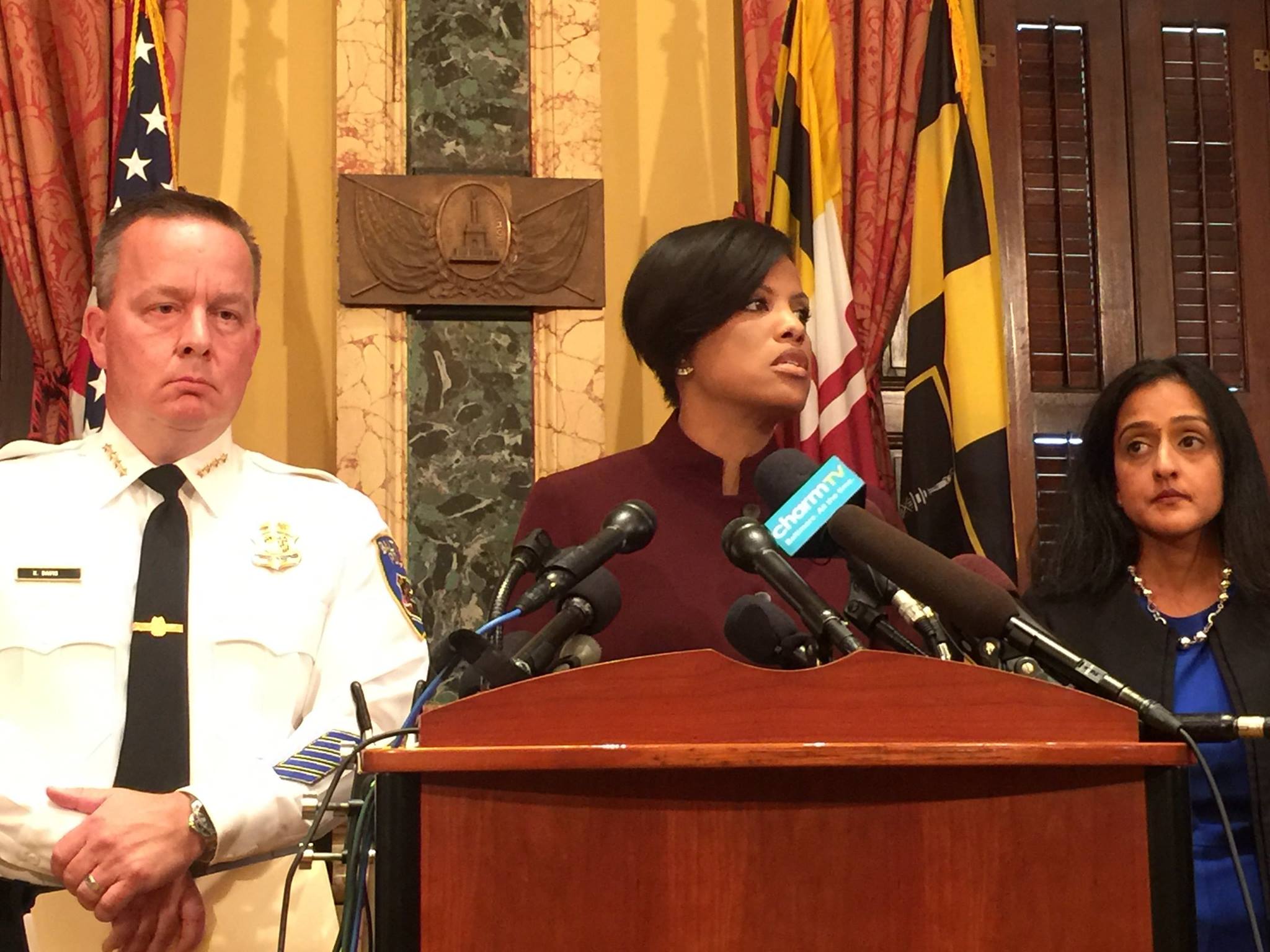By Len Lazarick
Len@MarylandReporter.com
The O’Malley administration’s proposal to build off-shore wind turbines to generate electricity faced strong headwinds in the Senate Finance Committee Tuesday.
Senators spent almost 2½ hours grilling administration officials about the annual cost to consumers to finance the project and the plan to force utilities to buy the power through a 25-year contract. In his testimony on the bill, the governor himself got similar blow-back from delegates at a House hearing March 3.
O’Malley is pushing the plan as a way to generate 3% of the state’s energy, part of the legislated goal to have 20% of Maryland’s energy produced through renewable methods by 2020. Doing so will put Maryland ahead of the curve on the East Coast, state officials said, and developing the wind turbines here could create jobs in manufacturing, transportation and installation.
A broad array of environmental groups supported the measure at the hearing.
But the senators objected to covering the costs to develop the project with a surcharge on electricity use for residential and business consumers, as well as the overall cost of the project. The Maryland Energy Administration said the surcharge might cost a residence $1.44 a month and the average supermarket $163 a month, but the surcharge wouldn’t appear on bills until the turbines are producing electricity in 2016.
O’Malley officials disputed the Department of Legislative Services estimate that the total project to build the turbines 10 to 12 miles off the Ocean City coast would cost $4.6 billion. They said the estimate was too high, but did not offer their own projected construction costs.
“This bill commits us to a process, not an outcome,” said Abby Hopper, O’Malley’s energy advisor. The Public Service Commission would review the proposals and could reject all of them if the costs are too high.
Even though the wind itself costs nothing, developing power turbines off-shore costs more than twice as much as most other forms of power generation, including land-based wind turbines.
“Why are we asking ratepayers to pay for this?” asked Sen. Catherine Pugh, D-Baltimore City. “They’re screaming and yelling about their bills going up already.”
“Private money won’t invest in these projects unless there are guarantees,” Hopper said.
Under intense questioning from Sen. Allan Kittleman, R-Howard, Public Service Commission Chairman Doug Nazarian admitted that “the best long term bang for the buck is nuclear. … Off-shore wind isn’t getting built on its economic merits.”
Because even off-shore winds are variable, the power from the turbines needs to be backed up by traditional sources of electricity, but Malcolm Woolf, director of the Maryland Energy Administration, said that the off-shore windmills could provide 79% of the power needs of the Eastern Shore.
Sen. Delores Kelley, D-Baltimore County, said, “We might be left with a big white elephant if no other states go for this,” and consumers would pay heavily for an unreliable source of power.
Sen. E.J. Pipkin, R-Upper Shore, who continues to back re-regulation of the utility industry, complained that “all the profits go to the people that develop it.” Pipkin said electricity customers foot the development costs, while the revenue stream to the developers is guaranteed by state mandated contracts that force utilities to buy the wind-generated power at higher than market prices.
Business organizations such as the Maryland Alliance of Manufacturers and utility companies including Constellation Energy and the Southern Maryland Electric Cooperative uniformly opposed the bill.






I seem to recal that marty has some kind of financial connection to the folks who are pushing for the new boondoggle. If this goes through he and his friends stand to benefit on the backs of Maryland taxpayers. This one doesn’t pass the smell test. Release the hounds!
Len, Not all of Maryland’s environmental organizations support the off shore wind legislation. The 30 year old Maryland Conservation Council has testified against it in both chambers. We initially opposed wind energy because of the large impacts on the environment that are rarely discussed, but quickly learned that wind is the most expensive way to generate electricity behind solar. As was acknowledged in the hearing nuclear is less expensive long term than wind. Maryland has created for itself a mandated requirement for renewable energy that is unrealistic and probably unatainable and this is driving policy toward more expensive electricity for ratepayers. The entire Renewable Portfolio Standard should be reconsidered and probably revised in light of recent developments. In addition the title of the legislation should be revised from Renewable Energy Portfolio Standard to Clean Energy Portfolio Standard that includes new nuclear generation and makes attainment of the goals for non carbon dioxide producing electricity generation more realistic.
Ken
Maybe we should bottle the hot air in Annapolis. That would surely begin to alleviate our energy needs. Somehow Annapolis never gets it right, especially when they start talking about energy. Just look how well deregulation has worked. Ditto for O’Malley taking on Constellation. 0-2 if we are keeping score. Alternative energy sources will be just that, an alternative-not primary because it is not dependable & expensive. Woolf’s statement on wind power contains a big caveat, the windmills COULD provide 79% of Eastern Shore’s energy, not WILL. If windmills were such a good deal, don’t you think the power companies would have jumped on the bandwagon with their own $$ instead of dumping the costs on the people of MD?